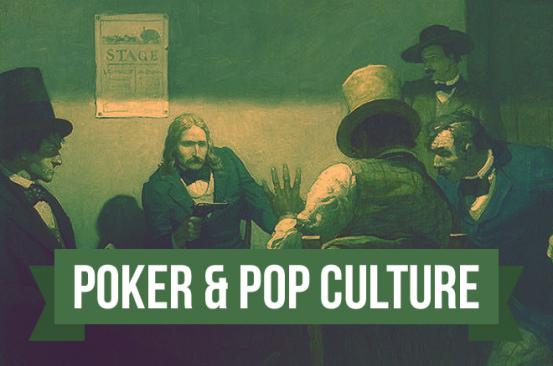- Commissioner’s statement on Ventura, Marte
- Ronnie O’Sullivan: Masters champion ‘felt so vulnerable’ in final
- Arron Fletcher Wins 2017 WSOP International Circuit Marrakech Main Event ($140,224)
- Smith challenges Warner to go big in India
- Moncada No. 1 on MLB Pipeline’s Top 10 2B Prospects list
- Braves land 2 on MLB Pipeline’s Top 10 2B Prospects list
- Kingery makes MLB Pipeline’s Top 10 2B Prospects list
- New Zealand wrap up 2-0 after Bangladesh implosion
- Mathews, Pradeep, Gunathilaka to return to Sri Lanka
- Elliott hopes for rain for Poli
Poker & Pop Culture: If I Gamble, Will I Go to Hell?
- Updated: May 10, 2016

As last week’s first hand of “Poker & Pop Culture” indicated, the focus in this series will primarily be on poker and American pop culture. That is to say, most of the films, paintings, songs, radio and television shows, stories, novels, letters, memoirs, biographies, articles, guide books, and other examples of cultural products and influence we’ll be exploring (in a roughly chronologically fashion) will have come from the United States.
It’s worth noting here near the beginning, however, that even if America wins the right to claim itself the birthplace of poker, the game — like most of the country’s population — was “parented” elsewhere, having descended from other, earlier games originating in other countries. A French game called poque (which we’ll touch on briefly next week) is the most likely candidate for the title of poker’s most immediate ancestor, although other games contributed as well (some of which are mentioned below).
See the first chapters of David G. Schwartz’s great history of gambling, Roll the Bones, as well as the start of Cowboys Full: The Story of Poker by James McManus for the full backstory on how betting on cards became common to numerous cultures all over the globe, and then to America as well. Both writers explain how evidence of humans’ urge to gamble can be found in the earliest historical record. Both also trace the introduction and development of various gambling games, the invention of playing cards, and how early card games of the late medieval and early modern periods eventually evolved into those first variants of poker in the early 1800s.
We will, however, step back a bit before picking up poker’s story in America next week. We’re not going all of the way back to the Garden of Eden, mind you, and a certain gamble once taken there involving forbidden fruit and the resulting loss of paradise.
No, instead we’re starting out by going to hell.
Poker: A Bad Reputation Before the First Hand Is Dealt
It’s in the seventh circle of hell that Dante Alighieri places gamblers (or “wanton spendthrifts”) in the Inferno, the first part of his early 14th-century epic The Divine Comedy. He situates them in a region designated for individuals guilty of “violence against oneself.” One of the damned is a Florentine nobleman who held high offices, Giovanni di Buiamonte. Of this “sovereign cavalier,” Dante saw his gambling (and loan sharking) as representative of a larger moral decline, and therefore deserving of harsh punishment in the afterlife.
Dante sets the tone for subsequent literary reflections on gambling and card playing. Such activities may not leave you sitting in hot sand with fire raining down on you as happens to Buiamonte in Dante’s poem. But you might still get burned.
There is no card playing in The Decameron, Giovanni Boccaccio’s great collection of 100 tales told by seven women and men seeking to escape the Black Death during the mid-14th century. Nor is there any in Geoffery Chaucer’s Canterbury Tales, in which pilgrims similarly conduct a kind of storytelling contest to help pass the time as they travel to the shrine of Saint Thomas Becket. In Chaucer’s collection, the Pardoner in his tale does rail against gambling, though, highlighting “hasardrye” — referring both to gambling in general and Hazard, a popular dice game — as especially harmful and the “mooder of lesynges” (the mother of lies).
If such works had been written a couple of hundred years later, we could have expected tales about gambling on cards to have appeared among the compilations, given that the stories in Boccaccio and Chaucer provide a comprehensive overview of life in the 14th century. Move a little further down the chronological road and card playing might well have been preferred over storytelling as a means to pass the time.
That’s not to say people weren’t gambling on cards even then. In fact, during the last quarter-century of the 1300s there would come a number of ordinances and prohibitions outlawing several different card games in Italy, France, Switzerland, Spain, Germany, and the Netherlands. The legal proscriptions against cards would keep on appearing in the following century and after, attesting both to the continued popularity of the games and the view of those in power that their spread was like another sort of …
continue reading in source www.pokernews.com
